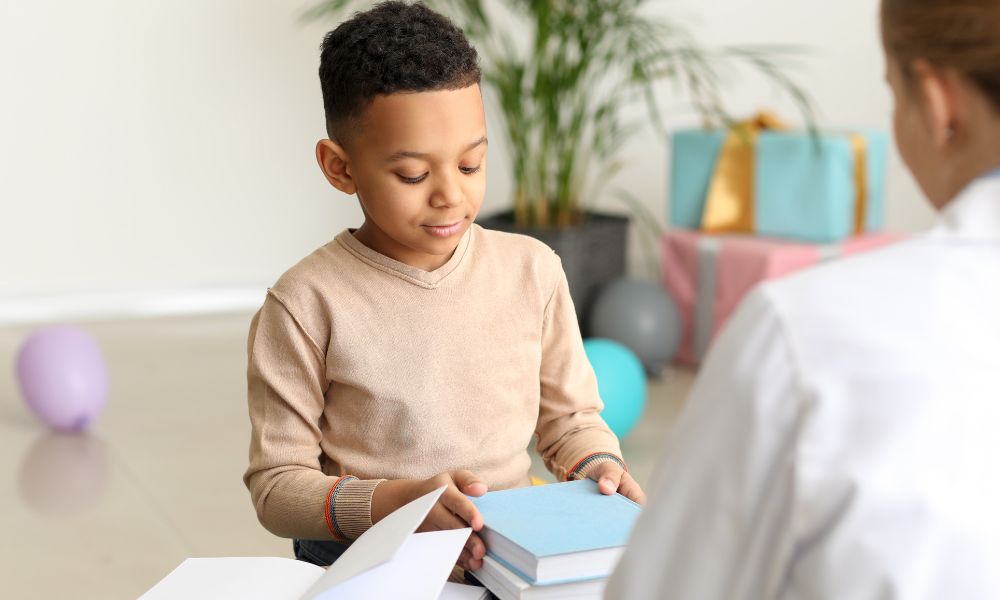As children approach school age, a common question that we get asked is, ‘Is my child ready to start school?’.
The answer to this question can vary considerably between each child although these are some things that we consider when responding to this question.
Speech sounds

We would expect a school child to have developed almost all of their speech sounds.
They may still be learning some of the trickier ‘late’ sounds such as /r/ and /th/. Overall, we would expect a child to be easily understood by everyone at this age (Speech Pathology Australia, 2024).
If a child’s speech is delayed or other children/adults have trouble understanding them, we need to think about the impact this may have on their development of peer relationships and confidence to participate in classroom activities.
Language
By school age, we would expect children to use well-formed sentences, tell very short stories or recounts about their day and take turns in conversations of increasing length.
Children can usually follow multi-step instructions by this age and start to have better understanding of time related words such as before and after. (Speech Pathology Australia, 2024).
Literacy
The literacy skills of a child starting school can be extremely varied.
While the school curriculum is designed to teach young children how to read, spell and write skills that children may learn before starting school include beginning to recognise some letters and sounds and clapping syllable beats in words.
Social and Emotional
This area is one of the most important things to consider when a child is starting school. If a child is able to play well with other children, that will help them to build strong relationships with their peers.
Skills to consider would be the ability to take turns, ask peers to play, share play with others rather than always leading the play, react well if they win or lose a game and being able to express their emotions and in a safe way.
If you have any concerns regarding the above skills, please feel free to contact Box Hill Speech Pathology for an assessment. If you are feeling unsure, have a conversation with your child’s kindergarten or school teacher to see if they have any concerns regarding your child’s communication or social and emotional development.
References

